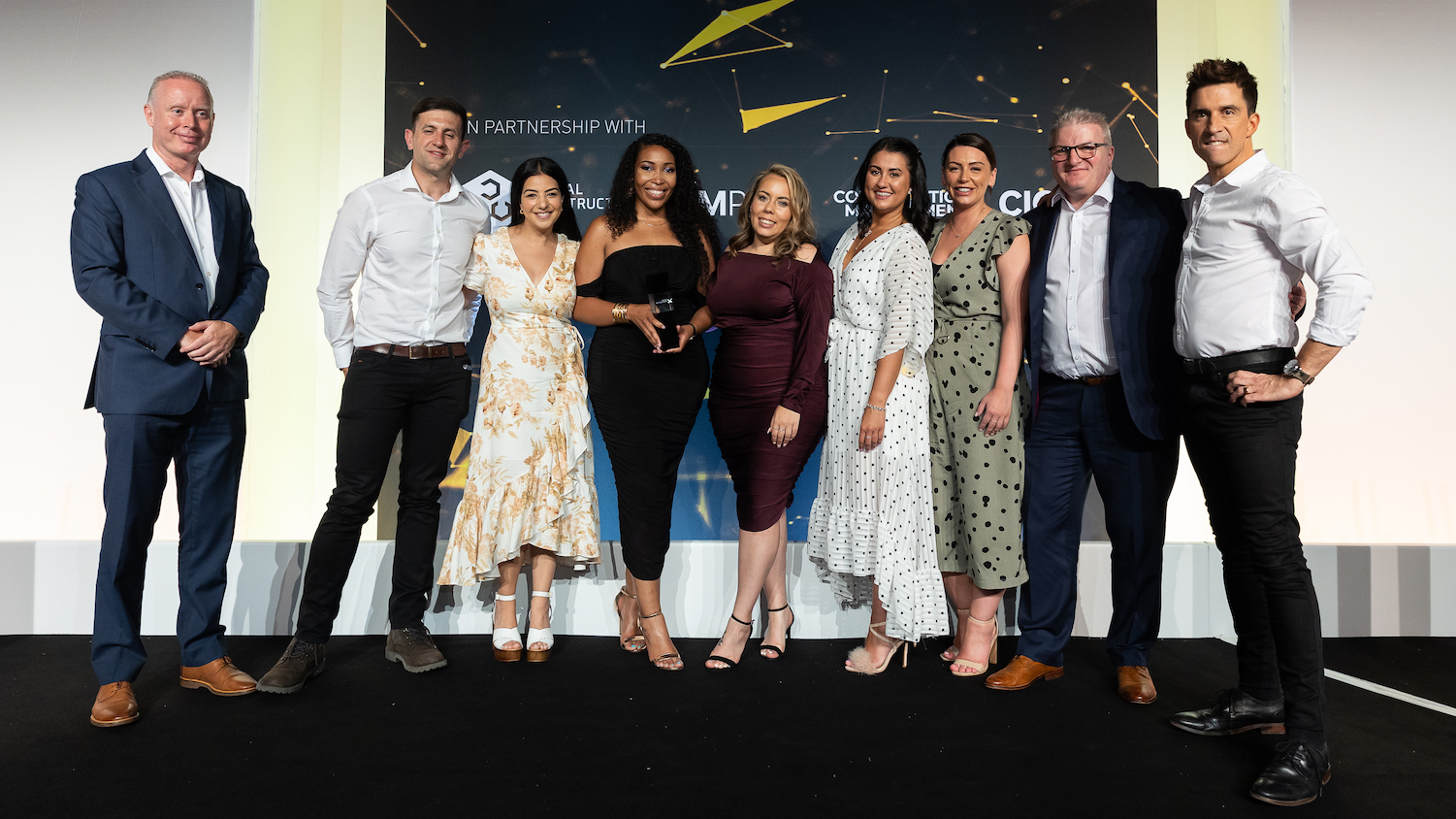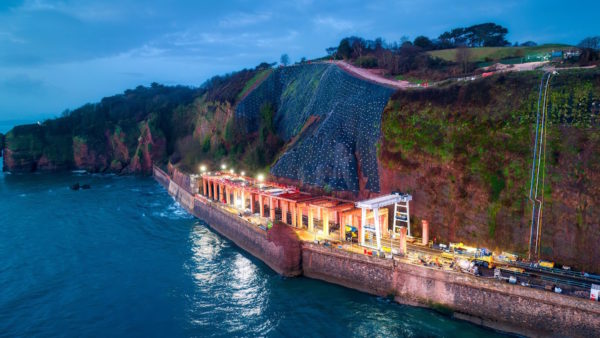
Lynch used technology and engagement with its staff to meet targets set by the Skanska Costain Strabag JV on HS2, and thus secured victory in the Delivering Net Zero with Digital Innovation category, sponsored by Zero, at the Digital Construction Awards last night (12 July).

Lynch’s client on the south section of HS2, the Skanska Costain Strabag JV, asked it to reduce plant idling by 20% to improve the air quality for the community surrounding the construction site.
Lynch looked at its available resources, namely technology, data and its people. The development of its strategy began with its Eco Driver Training Programme, which blended telematics data with advanced operator training.
Lynch proposed to carry out an onsite trial to identify current idling and carbon emissions. In addition, Lynch proposed to upskill and mentor 10% of its operators onsite over three months (from November 2021 until January 2022). Lynch educated the operators on the importance of sustainable working and how they could impact fuel consumption and carbon emissions.
Furthermore, Lynch’s data showed that individual upskilling was more effective in reducing machine idling than group presentations. It devised a Green Leadership Board based on the idling improvement per driver and per machine type. This served as a friendly competition between the drivers, which improved the overall results. Lynch also presented the data results to each operator, which made them aware of their individual carbon footprint.
“A great example of how data and technology can change mindsets and training operations to deliver real results. Few projects will show a more immediate reduction in greenhouse gases than this one.”
The overall goal was to move the driver idling percentage from red (above 60%), to amber (between 41% and 59%) and then to green (below 40%).
The total average idling percentage for the focus group at the start of this exercise was 41% (amber). However, by the end of January it had dropped to 24% (green). In addition, the total CO2 consumption was 44,423kg in November, but it dropped to 20,610kg in January: a 46% reduction.
A reduction in idling also led to a substantial fuel cost saving for the client. The total fuel consumption was 17,124.6 litres in November and dropped to 7,944.9 litres in January.
Following the success of the programme, Lynch has made Eco Driver Training a mandatory module for all operators.
Paul Keenan, head of machine controls at Lynch, said: “It’s just a sensible thing to do, the whole idea of being net zero – and it creates a better environment for our operators as well.”
Delivering Net Zero with Digital Innovation shortlist:
- 51 Moorgate | Skanska UK
- Ares Prism cost & carbon estimation and management | Ares Prism with the Environment Agency and Aecom
- Combining IoT with BIM to create a digital twin environment | ONE Creative Environments
- EOC ECO 2 | Eckersley O’Callaghan
- Printfrastructure: low-carbon, graphene enhanced 3D construction printing for HS2 | Skanska Costain Strabag JV with HS2 Innovation Programme and ChangeMaker 3D












